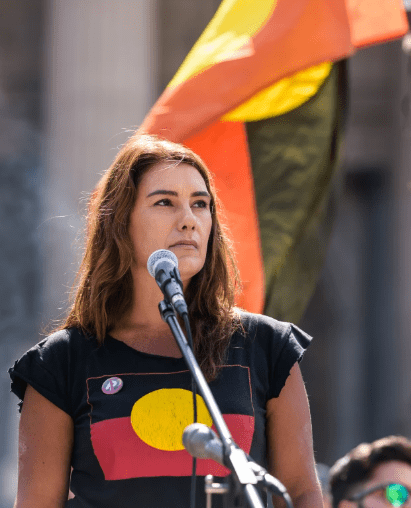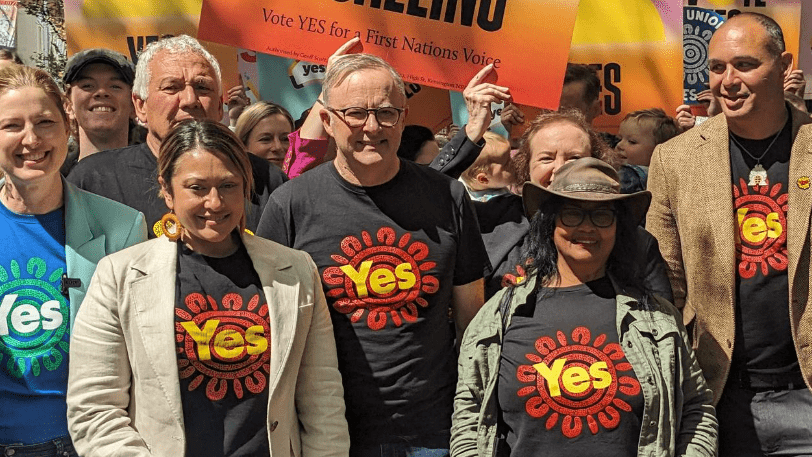After nearly two years of deliberation, two inquiries, and an election, the federal government has voted against enshrining Independent Senator Lidia Thorpe’s Private Members Bill, the United Nations Declaration on the Rights of Indigenous Peoples (UNDRIP), into law.
The UNDRIP Bill, introduced to Parliament in March 2022, seeks to establish the minimum standard of First Peoples’ rights, emphasising the principles of Self-determination, Free, Prior and Informed Consent, and the right to maintain and practice culture.
Its overarching aim is to safeguard the survival, dignity, and well-being of Indigenous peoples.

The legislation would mandate the federal government to align Commonwealth law with the Declaration, develop and execute an action plan to fulfill its objectives, and require the Prime Minister to annually report progress to each House of Parliament.
Expressing disappointment, Senator Thorpe, a Gunnai Gunditjmara and Djab Wurrung woman representing the Blak Sovereign Movement, criticised Prime Minister Anthony Albanese.
“The Albanese government claimed they cared about First Peoples rights and justice when they went ahead with the Voice referendum. Yet after the failed referendum, they can’t even bring themselves to support the minimum standards of our rights being adhered to in this country,” she said.
“Today our people have yet again been let down by a colonial government, even when we’re putting the solutions right in front of them. Once again our value as people and as First Peoples of these lands is being diminished.”
It comes two months after Australia voted against having an Indigenous Voice to Parliament, a mechanism aimed at amplifying the voices of First Peoples in shaping the nation’s political landscape. Prime minister Albanese had campaigned for several months to alter the Australian Constitution, a move that would recognise Indigenous Australians in the document through prescribing a body called the Aboriginal and Torres Strait Islander Voice, however, it was ultimately unsuccessful.

Professor Chelsea Watego, Munanjahli and Yugambeh woman and Executive Director of the Carumba Institute at Queensland University of Technology, expressed concern, stating, “The government’s decision is a step backward for First Peoples.”
“When we speak of Indigenous rights, we are speaking about Indigenous lives,” Professor Watego said. “It is a call for a rethink of Indigenous affairs, away from the needs-based approach which operates as a self-fulfilling prophecy, keeping us trapped on the mouse wheel of misery – it is what keeps our kids in out-of-home care, kicks our kids out of schools, places our people in prisons, and leaves us grieving at gravesites for lives lost well before their time.”
Thorpe emphasised the government’s reluctance to uphold international obligations despite signing onto the UNDRIP in 2009, illustrating a continued disregard for First Peoples’ rights and self-determination.
Gunaikurnai and Wotjobaluk man Benjamin Abbatangello accused Labor of shameless hypocrisy.
“If the Albanese government had a modicum of decency, then it would have enthusiastically supported Senator Thorpe’s bill – which is not only a bare minimum and uncontroversial piece of legislation that other comparable nations have already enshrined; but a logical next step in the wake of a failed referendum,” Abbatangello said.
“Over the last eighteen months, Labor ministers have written countless columns and used innumerable domestic and international press conferences, question times, senate estimates, television and radio interviews, sports and cultural events to prosecute the urgent need to address Indigenous marginalisation.
“Senator Thorpe’s bill provides the government with an actionable and familiar framework that would not only radically improve our lives, but address the very marginalisation that they said can no longer be ignored.”

